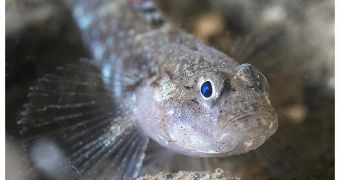Your parents might urge you to get a job if you've reached 30 and you're still living with them, but in animals, this can be much tougher: dad will eat his offspring.
A new research published in the journal "Biology Letters" has attempted to explain some of the reasons why parents might cannibalize their own spawn. Many animals cannibalize their own offspring, from pigs and polar bears to burying beetles, hamsters, wolf spiders and many fish species. Biologists cannot explain so easily how can a parent invest in its genetic legacy and then finish it off on its own. This research investigated the case of the sand goby (Pomatoschistus minutus), in which the male alone protects the eggs.
"Overall, dad does a pretty good job of taking care of the eggs, except for one thing - he tends to eat about a third of them. Based on previous work in this species, we know that the males aren't just doing this because they're hungry - even when they have excess food, they continue to eat a really large number of their own eggs," said researcher Hope Klug, an evolutionary biologist at the University of Helsinki, in Finland.
The team mated each male sand goby with two females, one after the other, so that the males protected mixed clutches of eggs at the same time. Then, the researchers discovered that the males ate especially the bigger eggs, that required longer periods to hatch and that had been lain by the second female. By cutting down the caring time, dads could resume the mating sooner. While defending the thousands of eggs until hatching, 1-2 weeks, the male "isn't able to attract any new females," Klug explained.
Thus, this cannibalism in fact "allow[s] him to increase the total number of offspring he produces over the breeding season." "As humans, we tend to think of parental care as a very loving and nurturing behavior, which it of course is most of the time. But sometimes there is a darker side to parental care, and understanding behaviors such as filial cannibalism often requires a very close look at what's going on," Klug told LiveScience.
"There are several reasons parents might eat their young, none of which are mutually exclusive."
Other species practice cannibalism for different reasons, such as eliminating genetically-weak offspring, or to hamper hunger during long feasting periods while protecting the eggs.
"Understanding why animals behave the way they do is essential for a range of applied applications, such as conservation programs. For example, many of us have probably heard about the polar bear mom that ate some of her cubs in a German zoo recently. Simply assuming that such behavior is abnormal is probably not a very productive approach in the long term. Instead, it might be more useful to ask what causes animals to exhibit such behavior," said Klug.

 14 DAY TRIAL //
14 DAY TRIAL //